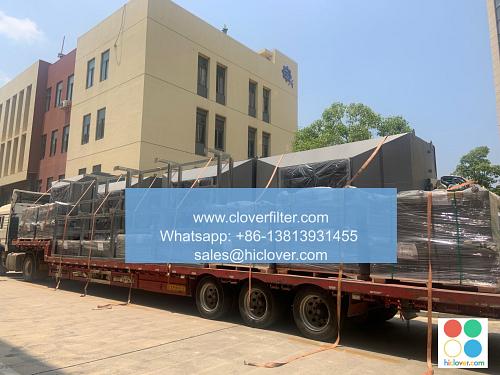Automatic Roll Air Filters: A Game-Changer for Boeing’s Washington State Cleanrooms

The aerospace industry, particularly Boeing’s Washington State facilities, demands the highest level of air quality control to ensure the production of high-precision aircraft components. Recently, the introduction of Automatic Roll Air Filters (ARAFs) has revolutionized the cleanroom technology landscape, providing a more efficient, cost-effective, and reliable solution for maintaining ultra-clean environments. In this article, we will delve into the world of ARAFs, exploring their cutting-edge features, applications, and the significant benefits they offer to Boeing’s cleanroom operations.
What are Automatic Roll Air Filters?
ARAFs are advanced air filtration systems designed to provide continuous, uninterrupted airflow while minimizing the risk of contamination. These filters utilize a unique roll-to-roll design, where a spool of filter media is automatically unwound and replaced as it becomes saturated with particles. This state-of-the-art technology enables the ARAF to maintain a consistent airflow rate, ensuring that the cleanroom environment remains stable and free from airborne contaminants.
Key Applications and Benefits
The implementation of ARAFs in Boeing’s Washington State cleanrooms has far-reaching implications, with various application areas benefiting from this technology. Some of the most significant advantages include:
* Improved Air Quality Control: ARAFs provide unparalleled air filtration efficiency, capturing up to 99.99% of particles as small as 0.3 microns, thereby minimizing the risk of contamination and ensuring the production of high-quality aircraft components.
* Increased Energy Efficiency: By reducing the need for frequent filter replacements and minimizing airflow resistance, ARAFs contribute to significant energy savings, making them an attractive solution for environmentally conscious and cost-sensitive industries.
* Enhanced Cleanroom Flexibility: The compact design and versatile installation options of ARAFs enable easy integration into existing cleanroom infrastructure, allowing for seamless upgrades and flexible layout configurations.
Real-World Applications and Success Stories
The successful integration of ARAFs in Boeing’s Washington State cleanrooms has been demonstrated through various real-world applications. For instance:
* Aerospace Component Manufacturing: ARAFs have been used to maintain ultra-clean environments in the production of sensitive aircraft components, such as electronic assemblies and precision-engineered parts.
* Research and Development Facilities: The advanced air filtration capabilities of ARAFs have enabled Boeing’s research teams to conduct experiments and testing in optimal conditions, free from airborne contaminants and environmental interference.
* Pharmaceutical and Biotechnology Applications: The high-efficiency filtration and sterile environment provided by ARAFs have made them an ideal solution for pharmaceutical and biotechnology industries, where ultra-clean conditions are crucial for product development and testing.
Conclusion
The introduction of Automatic Roll Air Filters has marked a significant milestone in the evolution of cleanroom technology, offering a game-changing solution for industries requiring ultra-clean environments. As Boeing’s Washington State facilities continue to push the boundaries of innovation and precision manufacturing, the integration of ARAFs will play a vital role in maintaining the highest level of air quality control, ensuring the production of high-quality aircraft components, and driving the company’s success in the aerospace industry. With their cutting-edge features, energy efficiency, and versatile applications, ARAFs are poised to become an indispensable component in the cleanroom infrastructure of various industries, including aerospace, pharmaceutical, and biotechnology.

